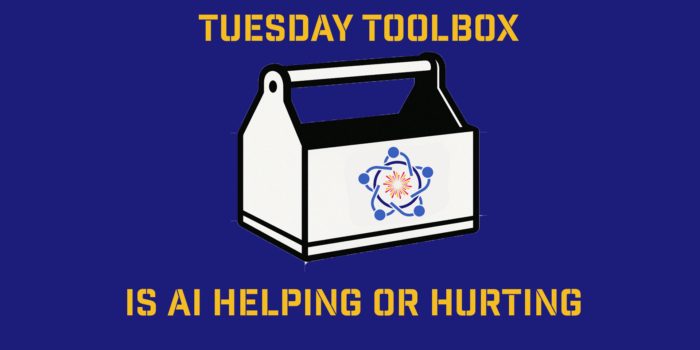Inc. shares insights from Shark Tank. How do you handle disappointment?
“You really have to stand up for yourself.”
That’s the message Shark Tank star Barbara Corcoran sent loud and clear in a recent interview she gave LinkedIn CEO Ryan Roslansky. The interview is full of powerful lessons from Corcoran’s life, but one story stood head and shoulders above the rest:
The time Shark Tank “fired” her, before she filmed a single episode.
Corcoran said she received a call from a woman asking her to be on a new show called Shark Tank. Ecstatic, Corcoran agreed. She immediately went on a shopping spree, buying new outfits and autograph-signing materials. “I’m going to Hollywood!” she excitedly told her friends.
Then, Corcoran got a dreadful phone call telling her “they changed their mind” and had decided to give her seat to another woman.
“I just couldn’t believe it,” said Corcoran. “It was the equivalent of [my ex-husband] telling me he was marrying my secretary.”
After hanging up the phone, Corcoran says she was “crestfallen.” But after taking a minute to feel sorry for herself, she took matters into her own hands.
Corcoran wrote an email directly to Shark Tank creator, Mark Burnett.
“Dear Mark, I consider your rejection a lucky charm,” Corcoran says. “Everything good happens to me after I get rejected.”
Corcoran then detailed multiple stories as evidence, including the time Donald Trump told her she’d never collect a penny of her $4 million commission, after which Corcoran says she sued Trump and got every penny.
Corcoran says she ended the email like this:
“I expect to be on that plane on Tuesday. And I hope you let me compete for the seat.”
Shortly thereafter, Burnett’s secretary wrote Corcoran telling her she would have the chance to compete for the seat.
The rest is history.
Corcoran’s actions teach a powerful lesson in emotional intelligence, the ability to understand and manage emotions effectively. Let’s break down three valuable takeaways from Corcoran’s story and see how you can apply them to your own business. (If you find value in this lesson, you might be interested in my free emotional intelligence course, which provides a new tip for building emotional intelligence every day for a week.)
Don’t dwell on negative emotions
Corcoran credits her employees for teaching her a lesson that helped her at this crucial moment.
“I learned from my salespeople over the years that the greatest salespeople [spend] less time feeling sorry for themselves,” Corcoran said. “They take the hits like everybody else but they don’t give themselves much time.”
“I mimic them in my own personality. And I really credit their example [for] what I did to Mark Burnett.”
It’s not just effective salespeople.
Everyone experiences failure. Everyone has bad moments. But instead of dwelling on negative emotions, emotionally intelligent people have the ability to process them and move on.
As it’s been said: You may not be able to stop a bird from landing on your head, but you can keep it from building a nest.
Use negative experiences as motivation
Instead of throwing herself a pity party, Corcoran used Burnett’s rejection as motivation. She then channeled those feelings and emotions into her email.
It worked. Not only did Corcoran motivate herself, her quick action, confidence, and masterful storytelling convinced Burnett to change course and give her a shot.
Corcoran says she learned that lesson when her ex-husband told her he was leaving her for her secretary. Consequently, Corcoran split the business she ran with her ex in half, and he told her she’d never succeed without him.
“When he gave me that curse leaving, I’ll tell you, I knew I was going to be successful,” Cocoran said. “Just to prove him wrong.”
Negative emotions can be useful if you learn how to harness them. But to do that, you have to consciously decide what you’re going to do with them. Be like Corcoran and use negative emotions as a catalyst for positive action.
Focus on what you can control
Corcoran realized she couldn’t force Burnett to change his mind. But she could stand up for herself, which would prove beneficial for her mental state.
And by getting on that plane and showing up, Corcoran gave herself every opportunity to get on Shark Tank.
This teaches a final powerful lesson: You can’t waste time on things you can’t control. But you can focus on what you can control and take action accordingly.
Dealing with a customer who refused to pay an invoice? Offer them a compelling reason to pay. Got an employee who’s lost their drive? Give them a listening ear and think of how you can support them.
The key is to ask yourself: What can I do to make this situation better?
So, the next time you’re frustrated by someone else’s actions, take a page out of Barbara Corcoran’s playbook and:
- Don’t dwell on negative emotions.
- Use the experience as motivation.
- Focus on what you can control.
In doing so, you’ll turn a negative into a positive, make emotions work for you, and experience positive results in the process.
EXPERT OPINION BY JUSTIN BARISO, AUTHOR, EQ APPLIED



